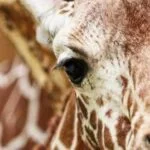Concern for Indian zoo animals as 13 zoos lose Authority recognition
India’s Central Zoo Authority has cancelled the recognition of thirteen zoos, for failing to adhere to the country’s zoo legislation requirements.
The Central Zoo Authority (CZA) recently announced it had cancelled recognition of thirteen zoos, listing the zoos and saying it had made the decision after considering the physiological, biological and behavioural requirements for the wellbeing of captive animals housed in the respective zoos.
On hearing the announcement, Wild Welfare’s field director, Dave Morgan, said: “CZA standards are by and large quite good, and prescribe large enclosure sizes and species-specific requirements. However, they are not always followed by all Indian zoos as this recent news demonstrates.”
The Central Zoo Authority (CZA) – a statutory body that falls under the Indian Government’s Ministry of Environment, Forest and Climate Change – is responsible for regularly evaluating zoos across India and ensuring they adhere to the relevant legislation pertaining to the housing of wild animals. The standards they evaluate fall under the ‘Recognition of Zoo Rules’ and relate to elements such as wild animal housing, diets, veterinary provision and healthcare.
In this case, it appears that thirteen zoos from across the country have failed to respond to areas where improvements were needed in order to satisfy the standards and maintain recognition, leading to the CZA’s decision to issue the cancellations and giving rise to concern for the future of the animals housed at the zoos.
Dave Morgan added: “Our concern now is what will happen to the animals held in these zoos that are being closed. Closure of a zoo isn’t necessarily a good thing for the animals involved, unless there are detailed plans that ensure the animals are moved to facilities that have high standards of welfare.
“These animals may now have to be held in temporary accommodation or be sent to facilities that are not equipped to keep them or they could end up being kept in over-crowded, under-resourced conditions.”
Last year Wild Welfare announced plans to explore possible new projects with the Zoo Outreach Organization (Zooreach), to help zoo animals across the wider South Asia region, where care and welfare standards for wild animals in captivity vary greatly.
~ENDS~
Notes to Editors
For more information or interview requests please contact Wild Welfare on communications@wildwelfare.org
Wild Welfare is a global organisation committed to improving animal welfare for captive wild animals. By uniting the world’s leading zoos, zoo associations and animal welfare organisations, we build trusting partnerships that help provide long-term solutions to critical wild animal welfare issues.
Our vision is to end the suffering of captive wild animals around the world and ensure full and sustainable protection is given to all animals in human care. Find out more at www.wildwelfare.org. Registered charity in England (no.1165941).
Image © Wild Welfare: A chital or spotted deer, the most common deer species found in India and a common resident of Indian zoos.





